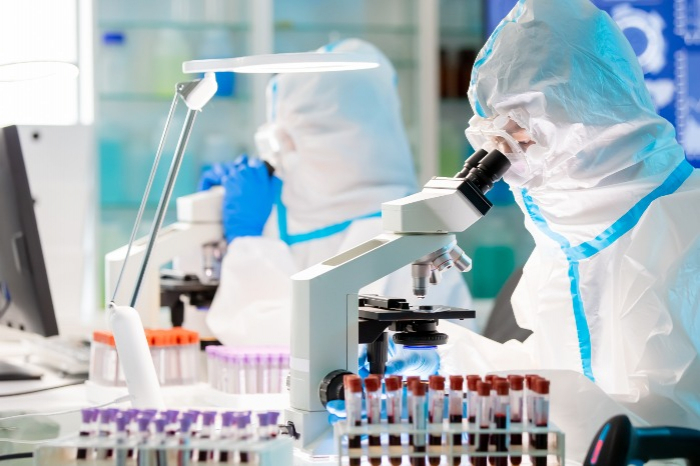Korean stock market
S.Korea's tech special IPOs face criticism on poor earnings of ventures
Despite snowballing losses, regulations allow them to remain listed for at least five years after going public
By Apr 03, 2023 (Gmt+09:00)
2
Min read
Most Read
LG Chem to sell water filter business to Glenwood PE for $692 million


Kyobo Life poised to buy Japan’s SBI Group-owned savings bank


KT&G eyes overseas M&A after rejecting activist fund's offer


StockX in merger talks with Naver’s online reseller Kream


Mirae Asset to be named Korea Post’s core real estate fund operator



Around 200 South Korean ventures have debuted on the country’s secondary Kosdaq market through the technology special listing program since 2005, which allows startups with great growth potential to go public even if they are yet to make profits.
Many of the ventures disappointed investors with poor earnings and no signs of financial improvement, raising market insiders' criticism of the efficiency of the listing program.
A total of 95 ventures were listed on the junior bourse through the program between 2020 and 2022. Among the companies, 89 achieved only 45.3% of their target sales during the period. Some 11 companies' sales were less than 10% of their target last year, The Korea Economic Daily found.
ACCUMULATED LOSSES FOR YEARS
Prestige Biologics Co., a local contract manufacturing organization for biosimilars, debuted on the Kosdaq market in March 2021 with a market cap of 530 billion won ($402.7 million).
The company forecast its revenue to be more than 130 billion won and 300 billion won in 2022 and 2025, respectively; but instead posted only 16 million won in revenue with 36.6 billion won in operating losses for last year.
The company would be subject to delisting with such poor earnings if it weren’t listed via the special listing program. The program allows the ventures to remain listed for at least five years.
Jeju Beer Company, which went public with a market cap of 180 billion won in May 2021, posted annual operating losses between 2020 and 2022. It logged 11.6 billion won in losses last year, a 60% on-year increase in losses.
Vaxcell Bio Therapeutics Co. and Neoimmune Tech Inc., which had IPOs in 2020 and 2021, respectively, have both posted no revenue over three straight years.
Cellivery Therapeutics Inc., a new drug developer listed in 2018, posted a net loss of 75.1 billion won last year. As its external auditor had questioned the company's financial stability and refused to include its opinions in the audit report, Korea Exchange has halted trading on the shares since March 23 of this year.
IPO MANAGERS' LIABILITY
Some stock exchanges overseas are even more open to growing ventures with less stringent financial and liquidity requirements than the special listing program of the Kosdaq. Among such global exchanges are the Nasdaq’s Global Market and Capital Market, London Stock Exchange’s AIM and Singapore’s Catalist.
The major difference is that Korea lacks the legal basis to define the scope of the IPO managers’ liability, compared with the global markets. Despite the low threshold for listings, the overseas markets charge brokerages, or lead managers of the IPOs, with great responsibility.
Under US regulations, brokerage firms can be held civilly liable for misrepresentations in Securities and Exchange Commission (SEC) filings. They may face sanctions from authorities, including penalties and fines. The rules also require Nasdaq-listed companies to achieve certain levels of performance, market cap and equity to remain on the market after listing.
Write to Ye-Jin Jun and Seok-Cheol Choi at dolsoi@hankyung.com
Jihyun Kim edited this article.
More to Read
-

-
 IPOsS.Korean biotech GI Innovation's IPO draws tepid market interest
IPOsS.Korean biotech GI Innovation's IPO draws tepid market interestMar 20, 2023 (Gmt+09:00)
2 Min read -

-

Comment 0
LOG IN


